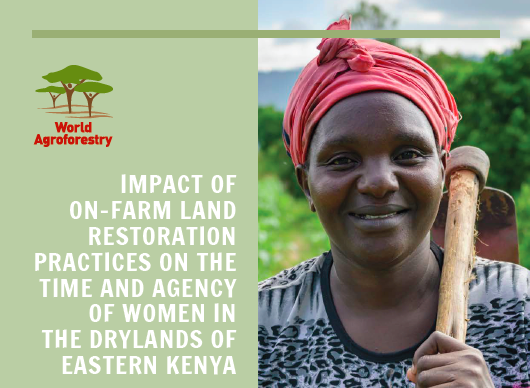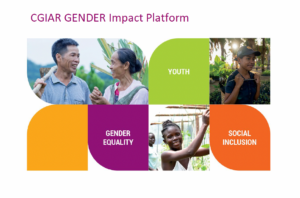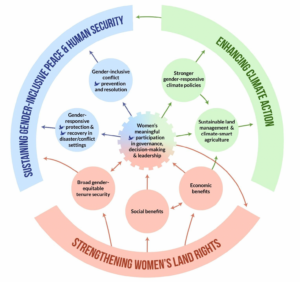This brief presents the results of the assessment on gender-differentiated impacts of tree planting and planting basins and explores the risks and opportunities that planting basins present for women farmers in terms of their workloads and agency over farm activities and decisions, and offers recommendations on how to diminish the risks and magnify the benefits of on-farm restoration practices.
Key Findings:
Planting basins may shift labour between men and women, increasing women’s involvement in land preparation activities and their already heavy workloads, but potentially also increasing women’s autonomy over these activities and allowing for earlier planting.
Gender norms around farming activities are changing, opening up opportunities for the wider uptake of restorative practices, but with potentially unequal results for men and women in terms of workload
- Planting basins can reduce the time available for other household and livelihood activities but reduce time spent weeding – a farming activity women are heavily involved in
Basins provide the short-term benefit of increased maize production – a benefit of particular interest to women, who are often responsible for producing food for the household
Farmers perceive that the benefits of basins outweigh the challenges and are coming together to overcome labour constraints
Uptake decisions regarding new technologies are largely made jointly between husband and wife
Women’s participation in agricultural trainings can help increase their involvement in farming decisions
Women may find it difficult to convey the potential benefits of new technologies to household members who do not participate in trainings or project activities
Authors: Mary Crossland (Bangor University) and Ana Maria Paez-Valencia (ICRAF)
Source: ICRAF




